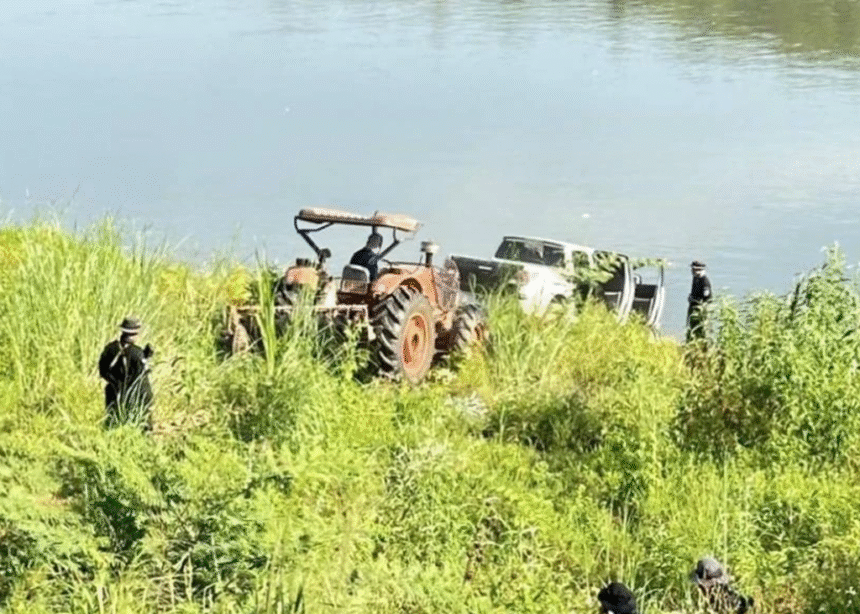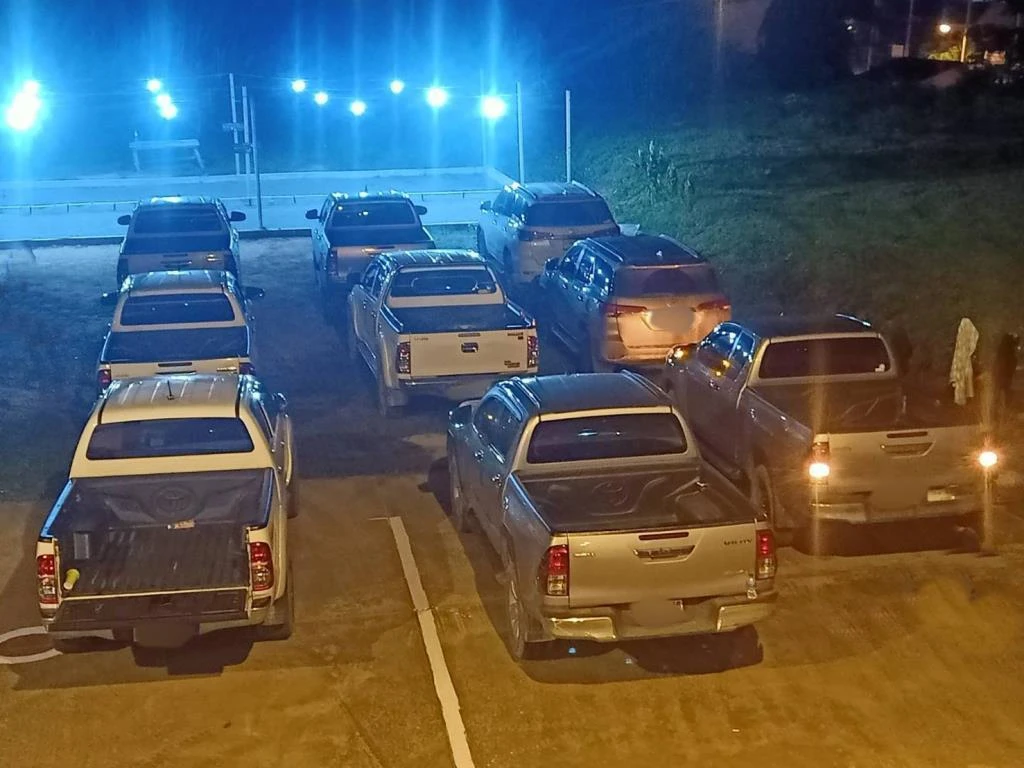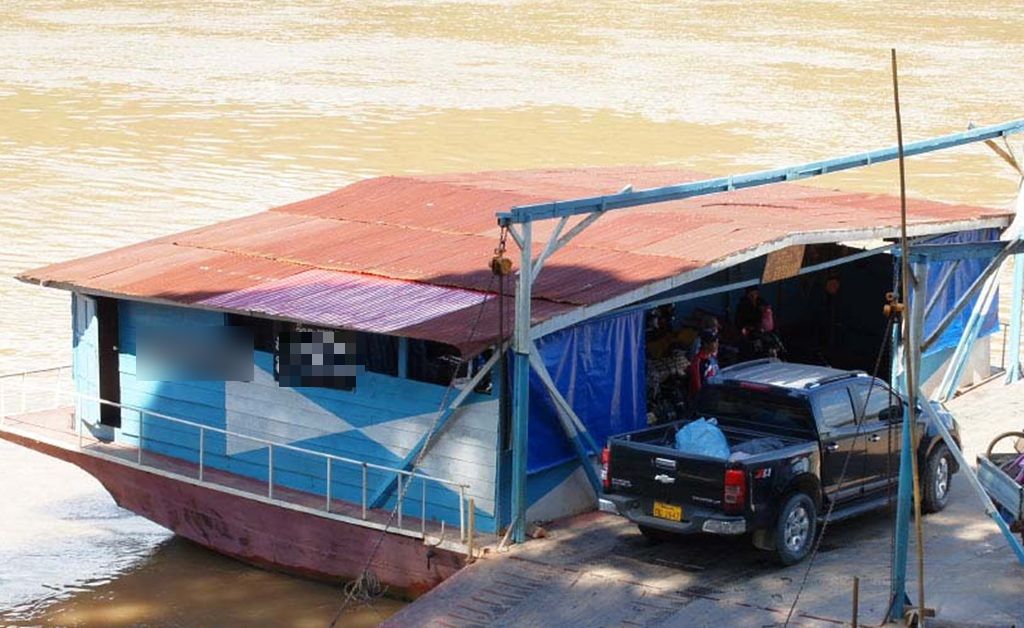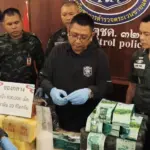CHIANG RAI – In a coordinated effort, authorities in Chiang Rai, Thailand, and Bokeo province, Laos, have launched a major crackdown on illegal vehicle smuggling across their shared border, targeting sophisticated networks trafficking stolen cars and motorcycles.
Vehicle smuggling has become a significant issue in the border areas, impacting both economies and security. Law enforcement agencies are not only focused on interception but are also investigating the roots of these smuggling networks.
For instance, authorities are looking into the connections between local businesses and these illicit operations, aiming to dismantle the entire infrastructure supporting vehicle trafficking.
Authorities in Bokeo province, Laos, are cracking down on the growing number of used car dealerships after reports of frequent cross-border smuggling. Smugglers have been moving both cars and motorbikes across the Mekong River, each vehicle fetching a payment of 150,000 baht for successful transport.
The impact of these smuggling activities extends beyond financial losses; it also poses challenges for law-abiding dealerships and legitimate buyers. Used car dealerships in the region are now under scrutiny, as authorities inspect their inventory for discrepancies in paperwork and identify any vehicles that may have been smuggled into the country. This increased vigilance aims to protect consumers and ensure that they are purchasing vehicles that comply with legal standards.
Some nights, as many as ten vehicles are taken across the border from Wiang Kaen and Chiang Khong districts.
The stretch of the Mekong running from Chiang Khong to Wiang Kaen in Chiang Rai covers about 100 kilometres. This river border between Thailand and Laos has become a busy route for illegal exports of vehicles to Laos, especially to Bokeo province directly across the river.
The Mekong River is not just a natural border; it has become a highway for illegal activities that threaten the safety and integrity of both Thailand and Laos. Given its extensive length, the river provides ample opportunities for smugglers to operate under the radar. Local fishermen and residents often report seeing suspicious activity along the riverbanks, highlighting the community’s role in combating smuggling by reporting illicit movements to authorities.
While arrests and seizures do happen, they are relatively rare. Still, the trade in vehicles over the river remains busy, leading to a big rise in used car tents on the Laos side. Officials suspect many of these dealerships handle vehicles brought in through unofficial means.
In response, public awareness campaigns have been launched to educate locals about the implications of buying smuggled vehicles. These campaigns emphasize the potential legal repercussions and the negative impact on the community, encouraging individuals to report suspicious activities rather than becoming unwitting participants in the smuggling trade.
Recently, Bokeo provincial police acted by checking several second-hand vehicles, including one owned by Mrs Khongkham in Ban Huay Sai Nuea, the main town in Bokeo Province, Laos.
In July 2025, the province’s police headquarters issued a notice to all staff, military, police, traders and the public, not only in Bokeo but in other provinces too.
Anyone who bought a car from Mrs Khongkham and found their paperwork was incomplete must fill in the necessary forms and report to the provincial headquarters within 20 days between 10 and 30 July 2025.
The notice also covers anyone who deposited money with Mrs Khongkham expecting interest, even if they never received it. After this deadline, documents will not be accepted.
Those involved in smuggling often use the less populated riverbanks of Chiang Khong and Wiang Kaen as their main exit points, since these places have fewer houses and are away from the busy tourist areas of Chiang Saen. Yet, they are still close to markets in Bokeo.
Smugglers are known to use various tactics to evade detection, including altering vehicle identification numbers and using false documentation.
The involvement of organized crime syndicates complicates matters further, as they often have connections that enable them to bypass checkpoints and law enforcement scrutiny.
Authorities are now collaborating with regional partners to enhance border security, sharing intelligence and resources to tackle this multifaceted challenge.
The usual smuggling routes run through grassy areas or along quiet riverbanks from Ban Mueang Kan and Ban Don Maha Wan in Chiang Khong up to Ban Chaem Pong in Wiang Kaen. Small, two-boat motor vessels from Laos often pick up vehicles here.
Wooden planks bridge the gap between the boats, and vehicles are driven across with skill, before setting off for the Laos side.
Thai and Lao border officials around Chiang Khong and Wiang Kaen have intercepted many vehicles waiting for pick-up at the river, but the smugglers continue to find ways through.
Over 2024 and 2025, the number of reported cross-border runs has grown, with cash payouts of up to 150,000 baht per vehicle for those helping at the riverbanks.
Once across the Mekong River, the price is raised to cover these extra costs, boosting the number of used vehicles in Laos, including the one recently investigated. Officials believe cracking down on both the smuggling networks and irregular car dealers is key to bringing the situation under control.
Efforts to combat vehicle smuggling are ongoing, with authorities continuously adapting their strategies to outsmart the smugglers. This includes increased patrols along the river and the implementation of surveillance technology to monitor known smuggling routes.
Engaging with the community is also crucial, as residents often have valuable information that can aid investigations. As the crackdown intensifies, both Thai and Lao governments are determined to send a clear message that illegal smuggling will not be tolerated.
Authorities are also exploring ways to improve cross-border cooperation, recognizing that a united front is essential in effectively addressing the challenges posed by vehicle smuggling and other related crimes.
With ongoing investigations and a proactive approach to border security, officials hope to significantly reduce the incidence of vehicle smuggling across the Mekong River. The collaboration between law enforcement agencies, local communities, and international partners will be key in achieving long-term success in this battle.
Source: Manager Online
















